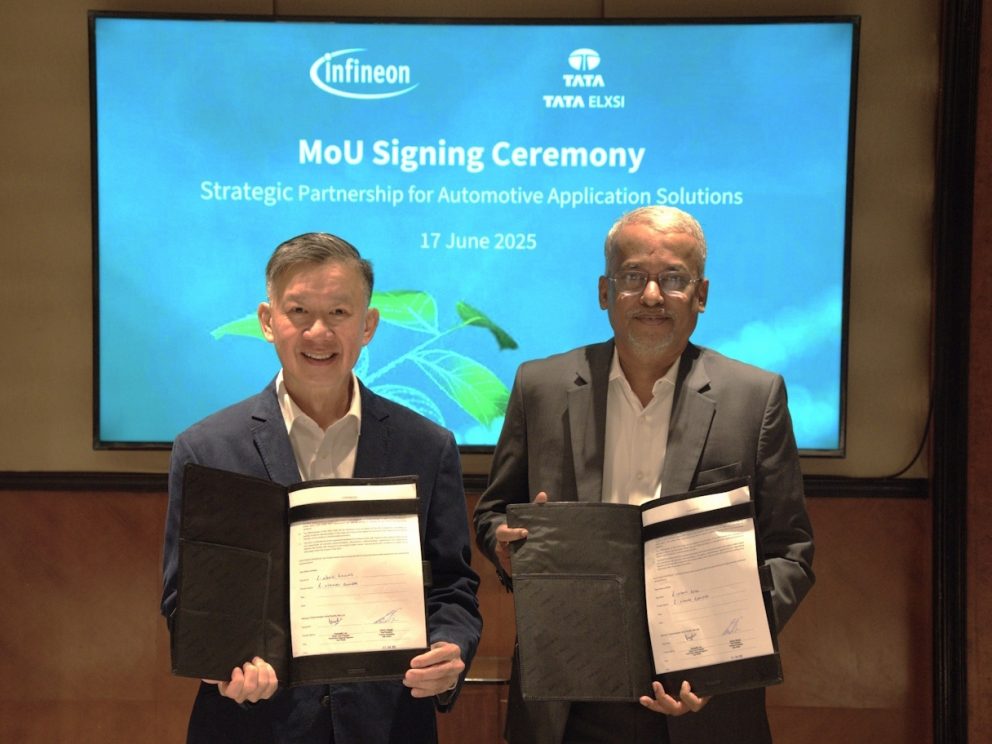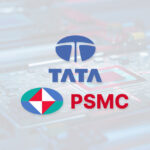ASIA ELECTRONICS INDUSTRYYOUR WINDOW TO SMART MANUFACTURING
Tata, Infineon Join Forces to Surge India’s EV Market
Design and technology services provider Tata Elxsi and semiconductor company Infineon Technologies have agreed to jointly develop application-ready electric vehicle (EV) solutions tailored to the Indian market.
The agreement of the two companies will complement the growing EV market of India, which has been shifting towards electrification.
The partnership strategically leverages design and integration expertise. Thus, enabling faster adoption of automotive-grade, cost-optimized, and safety-compliant subsystems across key mobility segments. Specifically, it addresses critical safety requirements such as ASIL-D (Automotive Safety Integrity Level D) compliance, as per ISO 26262 (Functional Safety of Road Vehicles) standards.

Boosts India’s Electrification Goals
In the partnership, Tata Elxsi brings its design, system integration, and validation capabilities. On the other hand, Infineon will provide early access to its latest semiconductor technologies to Tata Elxsi, such as silicon carbide (SiC)-based components, microcontrollers, and integrated circuits (ICs).
Through this collaboration, Tata Elxsi and Infineon will work closely to develop high-voltage inverters for traction and auxiliary systems, scalable battery management systems (BMS), bi-directional onboard chargers, and high-voltage thermal management solutions for the Indian market. This will serve India’s fast-evolving 2W, 3W, PV, and CV segments, with future pathways to address eVTOL, energy, and off-highway sectors.
“Currently, several of our EV solutions are already built on Infineon SoCs and components. This (agreement) further strengthens our partnership by giving us a clearer scope and tighter system-level alignment. Thus, enabling shorter turnaround times to address Indian market requirements. As EV adoption scales, our focus remains on delivering production-ready, automotive standards-compliant platforms and solutions,” said Nambi Ganesh, Head of Automotive, Tata Elxsi.
Meanwhile, Kenneth Lim, Senior Vice President, Automotive, Infineon Technologies Asia Pacific, said the partnership is a significant step towards supporting India’s electrification goals.
“By combining Tata Elxsi’s design and integration expertise with our advanced semiconductor solutions, we are not only enhancing the development of ready-to-deploy EV systems but also ensuring that they meet the highest safety and performance standards. Together, we aim to accelerate the adoption of electric mobility across various segments, from two-wheelers to commercial vehicles, and contribute to a more sustainable future for India,” said Lim.
India’s Rosy EV Market
India’s EV sector is experiencing rapid growth. For that reason, the strategic collaboration between Tata and Infineon aligns with India’s rapid shift towards electrification. India’s policy think tank NITI Aayog said with EV sales in the country is estimated to have grown by 25 to 30% year-on-year in 2024, including a 28% increase in electric two- and three-wheeler sales.
Incidentally, the Make in India initiative has been pushing also for complete domestic EV production. Thus, India has established an objective to elevate the proportion of Electric Vehicle (EV) sales to 30% in private cars, 70% in commercial vehicles, 40% in buses, and 80% in two-wheelers and three-wheelers by the year 2030. This equates to an ambitious objective of 80 million EVs on Indian roads by 2030.
Moreover, the Indian government’s incentives have been fueling the demand as well, such as the Faster Adoption and Manufacturing of Hybrid and Electric Vehicles (FAME) scheme. The government is forecasting its EV market to expand from US$3.21 billion in 2022 to US$113.99 billion in 2029 or a CAGR of 66.52%.
23 June 2025



